Analyzing Negligence: Duty of Care & Compensation Case Study
VerifiedAdded on 2023/06/10
|5
|701
|348
Case Study
AI Summary
This case study examines a negligence scenario involving Frankie, Geri, and Helen, focusing on the duty of care owed by Ellis, the milk tanker driver. It applies legal principles from landmark cases like Caparo Industries PLC v Dickman, Chadwick v. British Railways Board, and Bourhill v Young to determine whether Ellis was negligent and whether Frankie, Geri, and Helen are entitled to compensation. The analysis concludes that Frankie, who suffered physical injuries, and Helen, who experienced psychological trauma as a rescuer, have valid claims for compensation, while Geri's claim for panic attacks is unlikely to succeed due to the lack of foreseeability. Desklib provides students with access to this and many other solved assignments.
1 out of 5
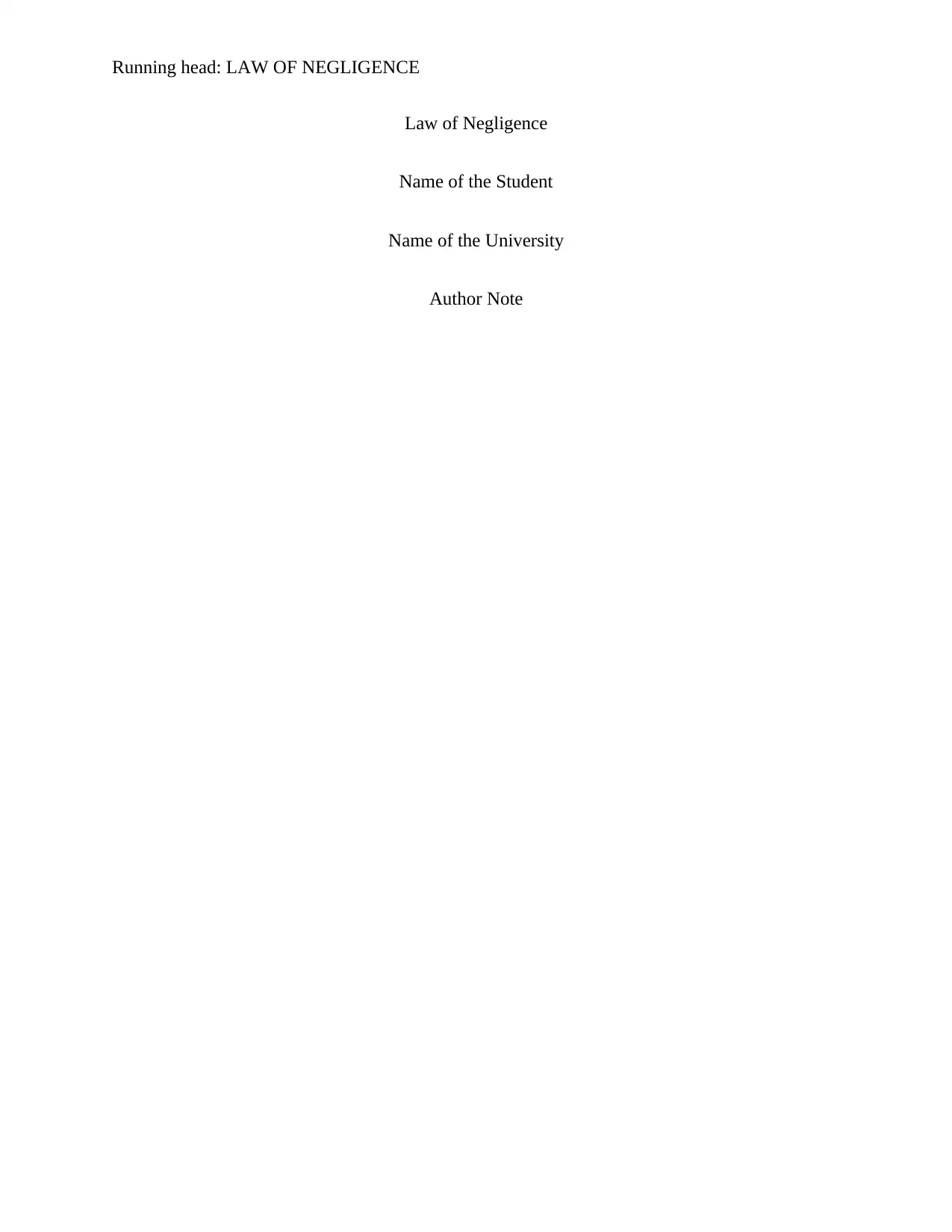
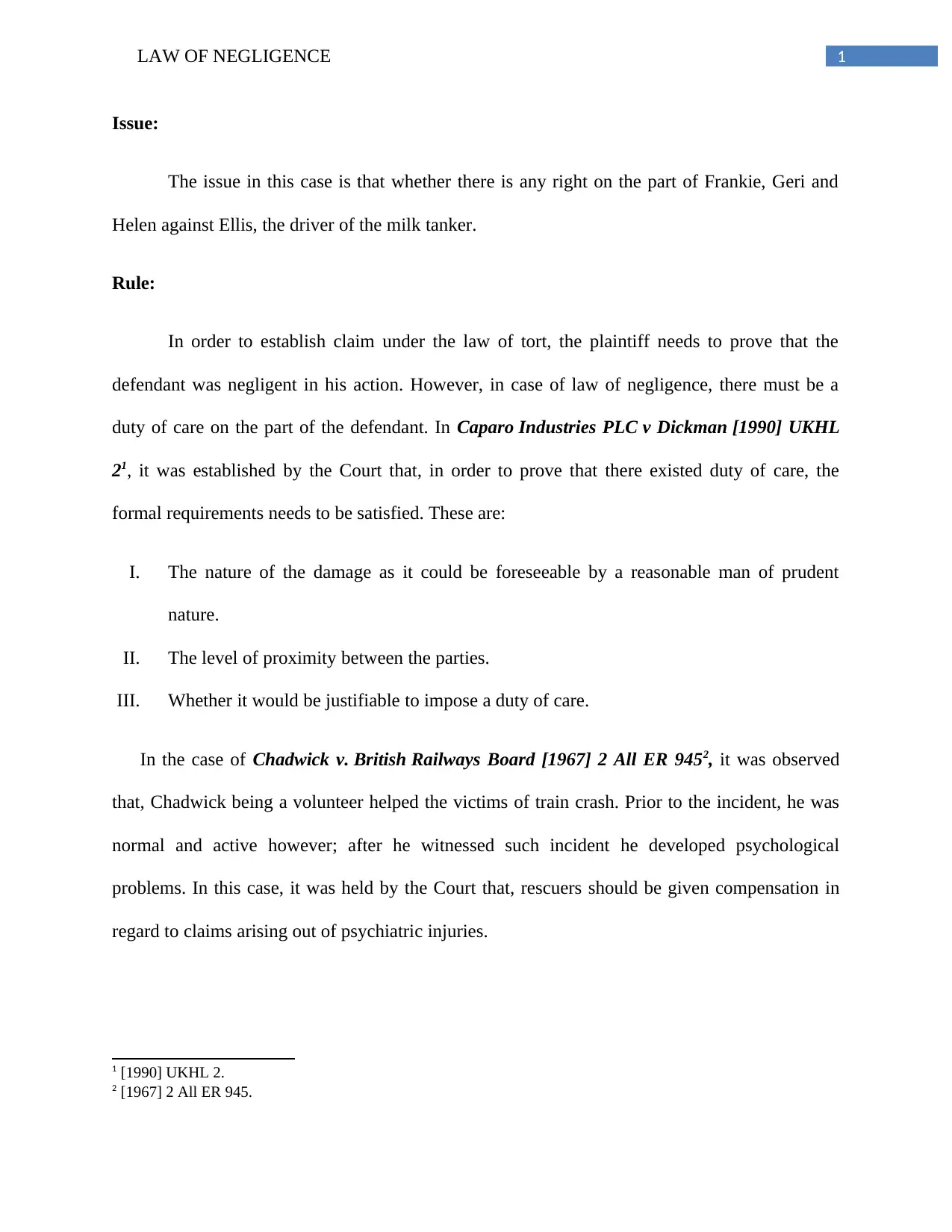
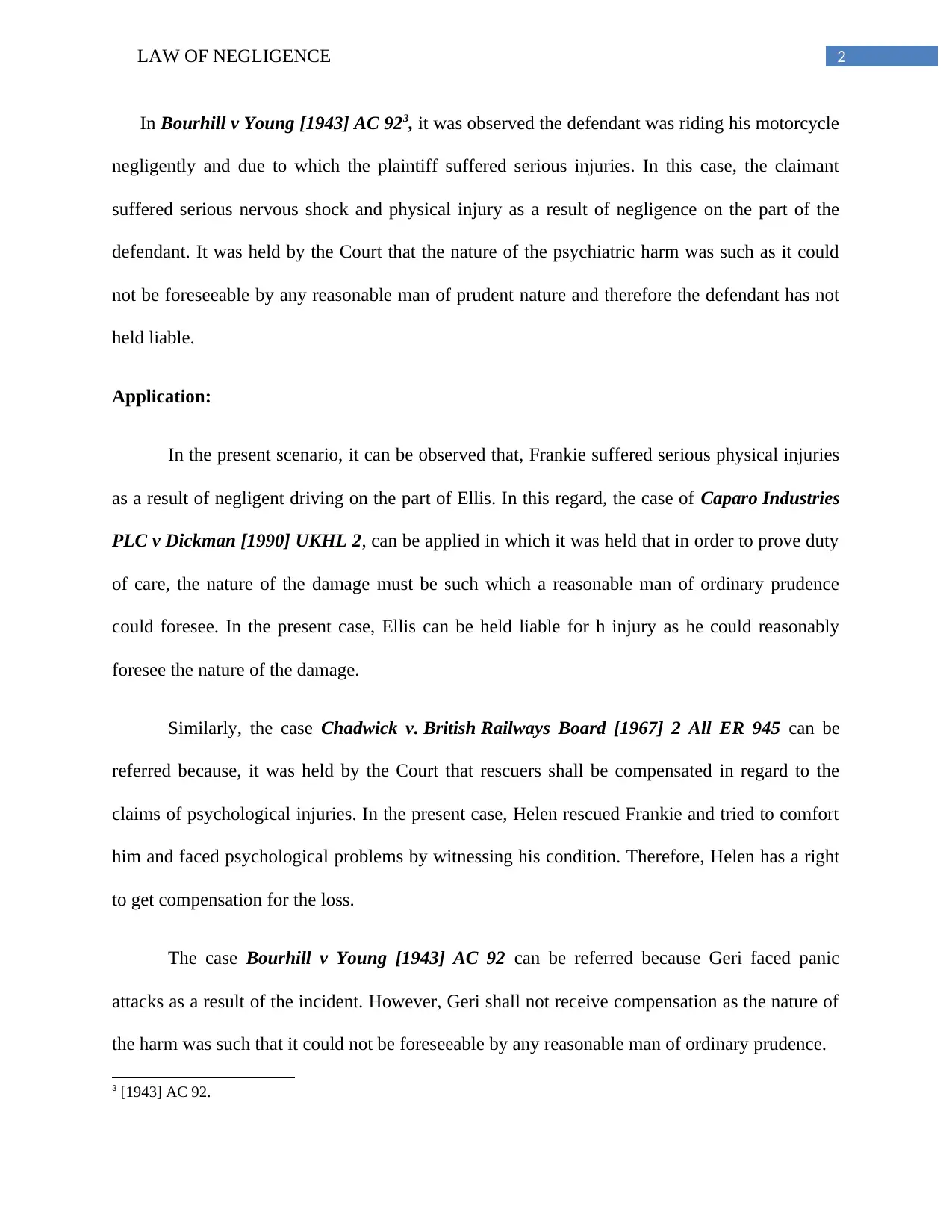

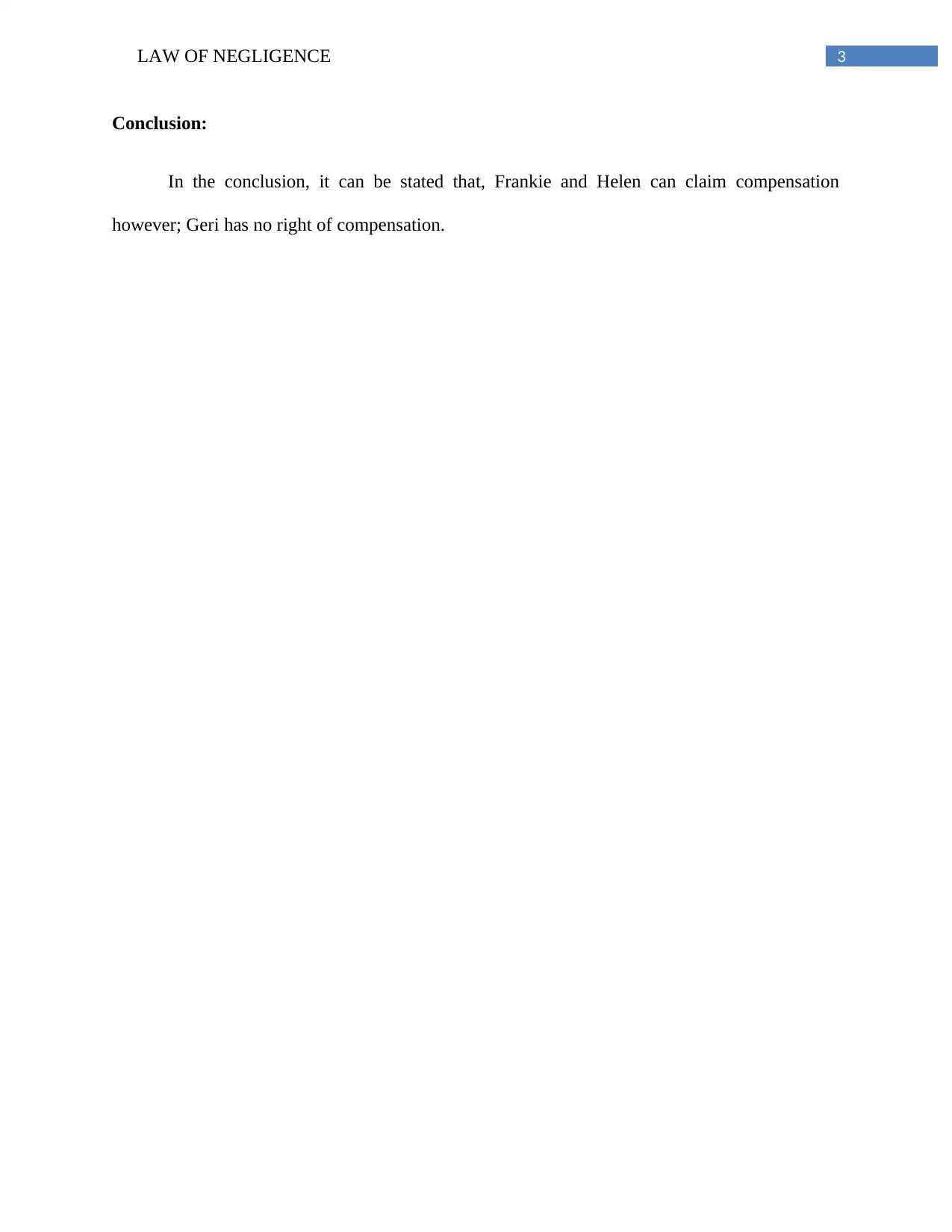
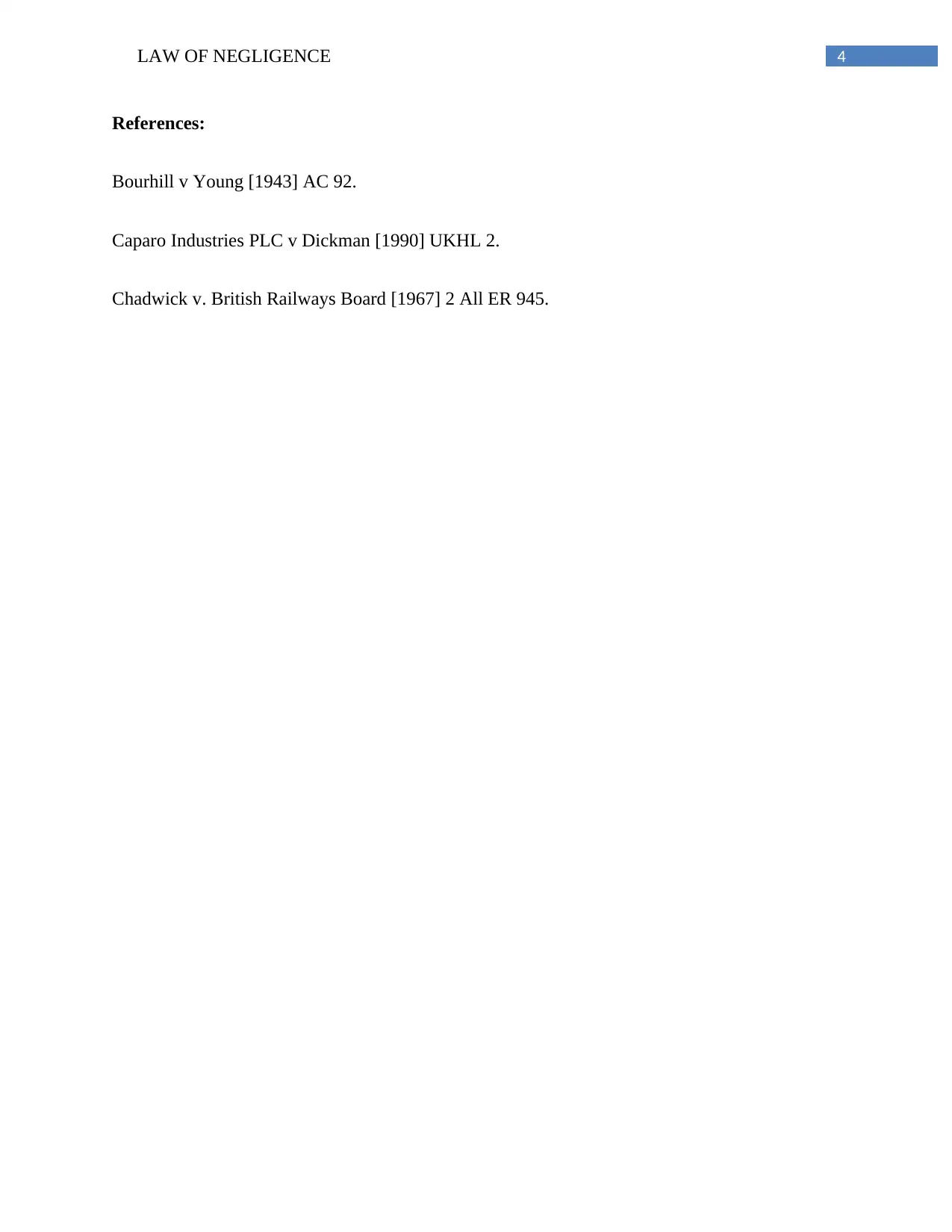






![[object Object]](/_next/static/media/star-bottom.7253800d.svg)